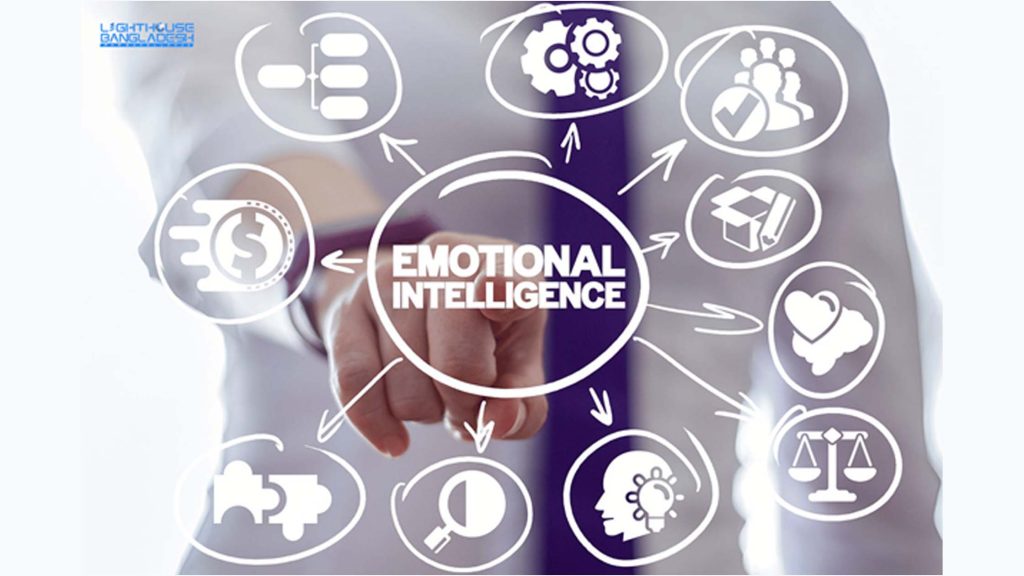In the dynamic landscape of personal and professional development, one term has consistently risen to the forefront: Emotional Intelligence (EQ). This quality, often referred to as the silent driver of success, has proven to be a key indicator not only in individual accomplishments but, more notably, in leadership. As we navigate the realms of understanding and managing emotions, it becomes evident that leading with empathy, a core aspect of emotional intelligence, is a powerful tool in fostering positive relationships and achieving success.
Definition of Emotional Intelligence (EQ)
At its core, emotional intelligence encompasses the ability to monitor one’s own emotions and the emotions of others, discriminate among them, and use this valuable information to guide one’s thinking and actions. It goes beyond mere self-awareness, diving into the realm of understanding and influencing the emotions of those around us.
Leading With Empathy – Emotional Intelligence
Emotional intelligence has been found to be an important indicator of life and career success – more specifically, success in leadership. Developing your emotional intelligence skills will benefit your personal and professional relationships. EQ refers to a form of social intelligence that involves the ability to monitor one’s own and others’ feelings and emotions, to discriminate among them, and to use this information to guide one’s thinking and actions
Emotional intelligence can provide the backbone of that understanding that strengthens team building, productivity, morale, and more. Whatever model your workplace follows, emotional intelligence can build better leaders and help prevent employee turnover.
The Significance of Emotional Intelligence in Leadership
Leadership success is not solely determined by strategic acumen or decision-making prowess; it equally hinges on the leader’s ability to connect with and understand their team on an emotional level. Emotional intelligence forms the backbone of this understanding, contributing to effective team building, heightened productivity, and boosted morale.
Impact on Personal and Professional Relationships
The influence of emotional intelligence extends far beyond the boardroom. It is a potent tool in building better leaders not just professionally but in all facets of life. Moreover, organizations that prioritize emotional intelligence witness a significant reduction in employee turnover, creating a more stable and harmonious work environment.
Models of Workplace and Emotional Intelligence
Whether your workplace follows a traditional hierarchy or embraces a more modern, collaborative approach, emotional intelligence is a universal asset. It seamlessly integrates into various workplace models, enhancing productivity, fostering better communication, and positively shaping organizational culture.
Developing Emotional Intelligence Skills
Developing emotional intelligence is a journey that starts with self-awareness. Understanding one’s emotions lays the foundation for empathy and effective social skills. Organizations and individuals alike can benefit from structured programs that focus on enhancing these skills, ultimately leading to improved emotional intelligence.
Real-world Examples of Successful Leaders with High Emotional Intelligence
From tech giants to visionary entrepreneurs, the business landscape is adorned with leaders who attribute their success to high emotional intelligence. Case studies on these influential figures provide insight into how EQ can be a driving force behind effective leadership and transformative organizational outcomes.
Challenges in Developing Emotional Intelligence
While the benefits of emotional intelligence are clear, the path to developing it is not without challenges. Common hurdles such as resistance to change and ingrained habits may impede progress. Recognizing and addressing these challenges head-on is a crucial step in the journey toward higher emotional intelligence.
Practical Tips for Enhancing Emotional Intelligence
Building emotional intelligence is not an abstract concept but a practical endeavor. Simple daily practices, such as reflective journaling and mindfulness exercises, can contribute significantly to self-awareness and empathy. Incorporating these habits into one’s routine is a tangible way to enhance emotional intelligence.
Measuring Emotional Intelligence
Assessing emotional intelligence is a vital step in the development process. Various tools and assessments are available, ranging from standardized tests to self-assessment techniques. Choosing the right method for measuring EQ ensures a comprehensive understanding of one’s strengths and areas for improvement.
The Connection Between Emotional Intelligence and Team Productivity
In the interconnected world of professional collaboration, emotional intelligence plays a pivotal role in creating a positive work environment. Leaders who prioritize emotional intelligence are better equipped to foster collaboration, resolve conflicts, and inspire their teams to achieve new heights of productivity.
Overcoming Misconceptions about Emotional Intelligence
Misconceptions surrounding emotional intelligence are common, often leading to its undervaluation. Dispelling these myths and understanding the true essence of EQ is essential for anyone seeking to harness its power for personal and professional growth.
Adapting Emotional Intelligence in Various Life Scenarios
The versatility of emotional intelligence is evident in its application beyond professional settings. Whether dealing with personal relationships, navigating challenging situations, or pursuing individual goals, the principles of emotional intelligence offer valuable guidance and resilience.
Case Studies: Organizations that Prioritize Emotional Intelligence
Real-world success stories highlight the transformative impact of prioritizing emotional intelligence within organizations. From improved employee satisfaction to enhanced innovation, these case studies showcase the tangible benefits of fostering a culture that values and develops emotional intelligence.
Conclusion
In conclusion, leading with empathy through emotional intelligence is not just a leadership strategy; it’s a life strategy. The profound impact it has on personal and professional relationships, coupled with its role in leadership success, underscores the importance of developing and nurturing this skill. As we continue to navigate the complexities of the modern world, the ability to understand and connect with emotions will undoubtedly be a defining factor in individual and collective triumphs.
FAQs
– Emotional intelligence can be developed and enhanced through self-awareness, practice, and continuous learning.
– Organizations can offer training programs, workshops, and create a culture that values open communication and empathy.
– While important in all industries, roles that involve leadership, teamwork, and client interactions often place a higher premium on emotional intelligence.
